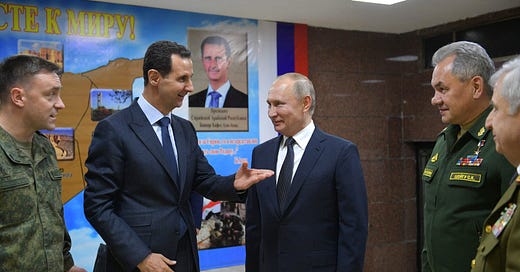Vladimir Putin visits a command post of the Russian Armed Forces in Syria. With Syrian President Bashar al-Assad and Defense Minister Sergei Shoigu, January 7, 2020. Source: http://www.kremlin.ru/events/president/news/62545/photos
Curiously enough, there is little in-depth work on what Vladimir Putin wants, in other words his ultimate goals. More precise…




